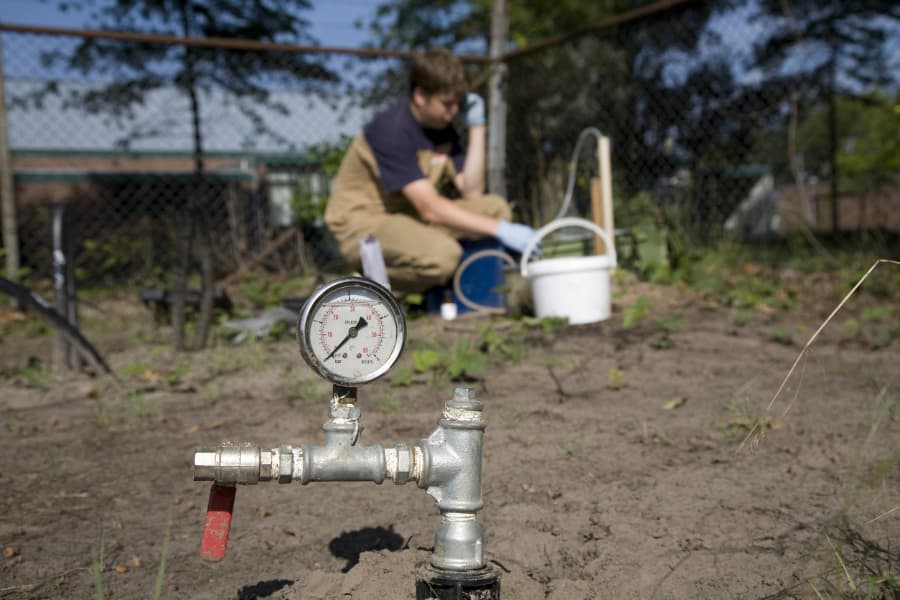Groundwater is found nearly everywhere beneath the Earth’s surface, permeating the spaces between soil and rock particles and flowing into surface water sources like lakes and rivers. When chemical pollutants get into the soil, such as from a factory or an underground oil tank, they also can leach into the groundwater, contaminating the water supply. Regular monitoring and testing can ensure that groundwater is free of contaminants. Learn more about groundwater testing from the team at Care Environmental Remediation Services in Northern New Jersey.
Groundwater at Residential Properties
We use water every day – for bathing, drinking, washing dishes, washing clothes, and watering our lawns. But do you ever stop to think about the quality of that water? In the United States, we’re lucky to have a safe, clean, and reliable water supply. However, even the safest water sources should be checked from time to time. Residential property owners who get their water from a well (rather than a municipal water system) should have their well water tested at least once a year.
Testing your well at least annually can help ensure you are not exposed to harmful chemicals or bacteria in your drinking water. Make sure you use a reputable environmental services provider to sample and test your well water. Your state’s health department or environmental agency may be able to recommend water testing services.
Groundwater at Commercial Sites
While groundwater at a commercial site may not be of immediate concern from a human consumption perspective, it is still critical to keep contaminants out of the groundwater and soil. A commercial property that has known or suspected environmental contamination may need to undergo a formal cleanup process, known as environmental remediation. Groundwater testing often is included in the cleanup process, which includes:
- Remediation Investigation (RI)
- Site Investigation (SI)
- Phase II Environmental Site Assessment (ESA)
To collect groundwater samples, a remediation professional may use the following technologies:
- Handheld portable drill: Handheld drilling is used to collect water samples at sites where groundwater is easily accessible or soil disruption needs to be minimized.
- Temporary well point: A temporary well point is used to collect samples of groundwater for future analysis. These collection points often are constructed with a rotary drill rig.
- Groundwater monitor well: Monitor wells are used to collect groundwater to assess the height of the water table.
Collected water samples are then tested and analyzed in a lab to check for the presence of chemical contaminants. If significant contamination is found, a state-regulated remediation process may be required. After the cleanup process is complete, ongoing soil and groundwater testing may be required to ensure the site remains safe for use.
Get in Touch With a Remediation Professional
For the safety of the environment and the people around you, you need a skilled professional to sample and test your site’s groundwater. Care Environmental Remediation Services offers comprehensive testing, evaluation, and remediation services for both commercial and residential clients across Northern New Jersey. Our team is well-versed in soil and groundwater testing and holds the following accreditations:
- Licensed Site Remediation Professional (LSRP)
- Licensed Environmental Resource and Geotechnical (ERG) Driller
- New Jersey Underground Storage Tank (UST) Certification in Subsurface Evaluation
- New Jersey Underground Storage Tank (UST) Certification in Tank Closure
- Occupational Safety and Health Administration (OSHA) Certification
For more information about our services or to schedule a free consultation, contact Care Environmental Remediation Services today.


